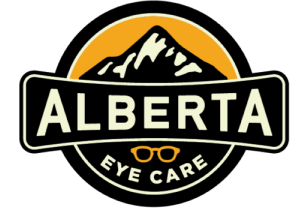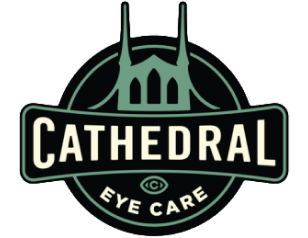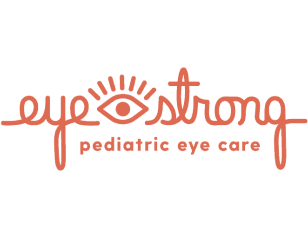Blue Light Explained: Protecting Your Eyes in a Screen-Filled World
Screens are everywhere — from smartphones and laptops to LED lighting and tablets. Along with our increasingly digital lives, one concern many patients bring up is blue light exposure.
At [tokens name=’practice’], we want our patients to feel confident navigating modern eye health. That means separating myths from facts and offering practical advice you can actually use. If you’ve ever wondered whether blue light is really affecting your eyes — or your sleep — here’s what you need to know.
Nearly 104 million working-age Americans spend seven or more hours a day in front of screens — a habit that’s linked to symptoms like digital eye strain, blurry vision, headaches, and dry eyes.
Still, there’s a lot of confusion about what blue light does — and doesn’t do — to your eyes. If you’re spending a lot of time on screens (like most of us are), it’s worth knowing how it might be affecting you and what small changes can help. Let’s break it down.
What Is Blue Light, Exactly?
Blue light is a type of high-energy visible (HEV) light within the spectrum of light your eyes can naturally perceive. It’s emitted not only by the sun but also by many everyday sources, such as:
- Phone, tablet, and computer screens
- LED and fluorescent lighting
- Flat-screen TVs
Unlike UV light, blue light doesn’t do visible damage to the eye’s surface, but it does reach deeper structures like the retina. That means prolonged exposure—especially from screens—may contribute to digital eye strain and discomfort.
Who’s Most Affected by Blue Light?
Blue light impacts all of us, but some groups are more likely to feel the effects of digital eye strain. If you fit into one of these categories, you may notice symptoms sooner or more often:
- Office workers and remote workers who spend 6–8 hours or more on computers every day
- Students using tablets, laptops, or e-learning platforms for schoolwork
- Gamers and streamers who log long hours on backlit screens
- Children, since their eyes absorb more blue light than adults while still developing
If you’re in one of these groups, building healthy screen habits now can make a big difference for your comfort and long-term eye health.
How Blue Light Affects Your Eyes — and How to Spot the Symptoms
Spending long hours on screens doesn’t just tire you out — it can also wear on your eyes. This is what’s known as digital eye strain, or computer vision syndrome, and it’s becoming more common as screen time increases.
Some of the most noticeable symptoms include:
- Tired, sore, or itchy eyes
- Blurry or fluctuating vision
- Dry eyes from reduced blinking
- Headaches or difficulty focusing
- Neck or shoulder pain due to posture
- Trouble shifting focus from near to far
- Disrupted sleep, especially with evening screen use
These symptoms tend to get worse the longer you’re on digital devices — especially without breaks.
What Can You Do to Reduce Blue Light Exposure?
There are easy ways to reduce eye strain and make screen time more comfortable:
- Follow the 20-20-20 rule: Every 20 minutes, look at something 20 feet away for 20 seconds
- Adjust your setup: Keep your screen 20–28 inches from your eyes, tilted slightly downward
- Use Night Mode or blue light filters on your devices
- Blink more often — and take screen breaks throughout the day
- Consider blue light filtering lenses if you’re on screens for extended periods
- Encourage outdoor time for kids, especially as screen time increases
At Alberta Eye Care, we help patients build practical habits to protect their vision and stay comfortable.
Are Blue Light Glasses Worth It?
Blue light glasses aren’t a cure-all, but they can make screen time easier — especially if you work long hours on a computer. These lenses filter out a portion of HEV light, which may reduce visual fatigue and help with nighttime screen use.
Exposure to blue light in the evening can delay melatonin production, making it harder to fall asleep. Some studies even suggest that blue light filters may help improve sleep quality when used before bed.
We’ll help you choose a lens option that fits your routine — whether you’re working, studying, or scrolling.
Helping Kids Build Healthier Screen Routines
Kids are using screens earlier and more often than ever — and because their eyes are still developing, they may be more sensitive to blue light.
According to the AOA, a child’s eyes absorb more blue light than an adult’s, since their lenses are still clear and developing. That means blue light reaches deeper into the eye, possibly increasing the impact of prolonged screen use.
What we recommend to parents:
- Prioritize balance, not perfection
- Encourage 2+ hours of outdoor time each day
- Use blue light filtering lenses for kids who are on screens for homework, gaming, or socializing
- Watch for signs of eye strain — blinking, rubbing, squinting, or pulling away from screens
- Build in natural screen breaks during school or play
Our team offers kid-friendly lenses and guidance to help families create healthier screen routines. And because every child’s eyes are unique, a comprehensive pediatric eye exam is the best way to catch early signs of strain and support healthy visual development.
How We Support Screen-Related Eye Care
From kids with growing screen needs to adults balancing work and home life, we provide guidance that fits your lifestyle. Our exams look beyond your prescription to make sure your eyes are staying healthy in today’s digital world. During your visit, we can:
- Check for signs of digital eye strain
- Evaluate your tear film, blink rate, and screen setup
- Recommend lenses or filters that support screen comfort
- Offer guidance for kids’ visual development and screen use
Whether you’re navigating hybrid work, online school, or just everyday screen overload, we’re here to help protect your long-term eye health.
Let’s Make Screen Time Easier on Your Eyes
Screens are part of modern life — but your eyes shouldn’t have to suffer for it. At Alberta Eye Care, we’ll help you build smarter habits, explore your lens options, and keep your vision comfortable, clear, and healthy.
Book your next exam today and let’s take care of your eyes — no matter how much time you spend online.


